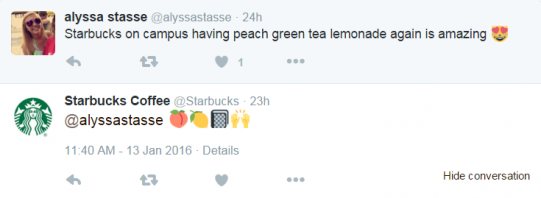
These days, pretty much everyone is on social media. 73% of Americans have a social network profile. There are many people who find social media to be the easiest way to contact a company or service. In 2013, more than 67% of respondents to a survey said they’d contacted a company through social media for support.
So, use social media! But always, and I mean always, be aware of what you’re posting for everyone to see.
Here are seven tips to help you make the most of your brand’s social media presence.
1. Respond to Your Customers Immediately
People are using social media because it’s designed to be a fast, two-way channel of communication. In fact, 42% of customers expect a response within 60 minutes. If your brand receives a lot of traffic on your social media accounts, it may be a good idea to set some guidelines to prioritize responses.
In fact, some companies, like Nike and Xbox, have set up separate Twitter accounts just for customer support. By doing this, these companies are encouraging their customers to reach out to them.

Source: Twitter
Ignoring the customers who contact you through such a public medium can be devastating to your brand. Studies have shown that the customers companies engage with on social media can spend over 30% more than those who receive little to no engagement.
Don’t just use complaints or questions as a reason to engage with customers. You should interact with your audience regularly. It makes your brand seem more human and approachable for when your consumers have a concern or question. Plus, it gives you the extra opportunity to delight your customers!
2. Keep It Personal
No one wants to feel like they’ve been given a generic response to a question or concern. It makes the customer feel less important. Consider putting the person’s name in a response and be sure to use creative and different responses for each person.
As an added plus, have the response signed by the person who sent it. If you want to see a great example of a company who keeps it personal, check out Buffer’s Twitter replies.

Source: Twitter
3. Empathize With the Customer
No, the customer is not always right. Anyone who has ever worked a customer service job will tell you that. But does it matter if they’re wrong? Nope. You are serving them, so even if you disagree with what the customer is saying, you still need to keep your cool.
We all make mistakes on social media. Even NASA. Sometimes, these mistakes go viral, like this company below. It was featured on the show Kitchen Nightmares and went viral for the way it responded to the negative comments about the owner’s behavior, ultimately causing the business to close.

Source: Facebook
You should never negatively address customers, especially online. It’s customer service 101. Customers want polite, fast, and convenient communication with businesses, and if they’re not happy, they’ll let the world know.
4. Don’t Always Auto-Respond
Sometimes, auto-responses work. Sometimes, they don’t
Auto-responses can defeat the purpose of social media being more personal. If customers are all getting the same response for their individual problems, then it makes it seem as though the company doesn’t care about each customer.
However, you can create different templates for the most common inquiries and issues. Just make sure they’re relevant. American Airlines, for example, probably shouldn’t have thanked a complaining customer for his support

Source: Spokal
5. Set Up Alerts
Customers aren’t always going to tag your brand in a post when they’re talking about you, so you need to make sure you’re tracking every remark. You can do this through Google Alerts, sites like Mention, or a simple Twitter search. This way, you can respond to a customer even if the message was not directly sent to you. Starbucks wasn’t tagged in the tweet below, but they still responded.

Source: Twitter
6. Stick to the Same Channel
If a customer is reaching out to you on Twitter, chances are they want the response that way, too. Even if it’s an angry comment or complaint, respond on social media and make the suggestion to move the conversation to a private message or phone call, such as what Bank of America does below (although the three hours they took to respond doesn’t follow other best practices).

Source: Facebook
7. Use Humor!
Humor on social media creates a sense of unity (though you don’t want to joke with an angry customer), because it’s a language everyone speaks. Plus, laughter is social. We laugh more around others than when we’re alone.
Humor can trigger an emotional response that will help the customer remember your brand better and associate it with positive feelings. Remember Kmart’s “I Shipped My Pants” commercials? Kmart isn’t exactly a thriving brand anymore, but people talked about those commercials for months.
Twitter is a great place to find brands interacting not only with customers, but also with each other. Because of Twitter’s short and witty environment, it’s often humorous.Taco Bell and Old Spice are great examples of this.

Source: Blue Soda Promo
Brands who aren’t afraid to use a bit of humor seem more human and approachable, which can help with customer service.
Need more convincing? Just go to Old Spice’s Twitter page and see for yourself. Their humor is consistent throughout every post, so they’re making their customers laugh even if it isn’t relevant to their products.

Source: Twitter
Embrace the Social Life
Overall, people who use social media are, well, naturally social and more likely to want to talk about their experience. Some active users can have hundreds or thousands of followers who would see a positive review about your brand. Plus, using social media makes following up with customers so easy, and then the whole world will know just how great your company or brand is for customers.
Digital & Social Articles on Business 2 Community(146)
Report Post




